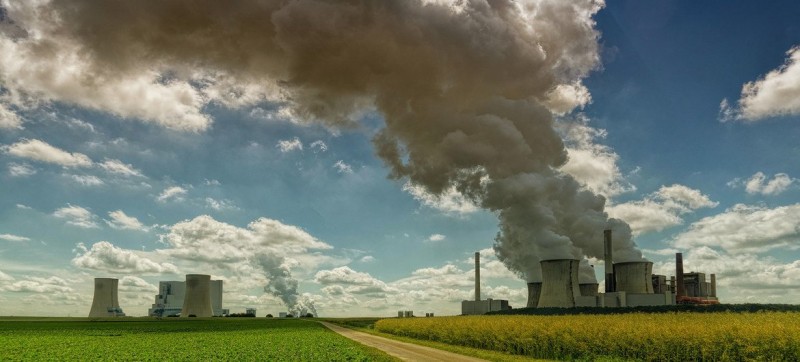Play video
Unsplash/Johannes Plenio Carbon dioxide levels continue at record levels, despite the economic slowdown caused by the COVID-19 pandemic.
The WMO initiative would create a network of ground-based measurement stations that can verify worrying air quality data that’s been flagged by satellites or airplanes, potentially in the next five years.
Tweet URL
“At present, there is no comprehensive, timely international exchange of surface and space-based greenhouse gas observations,” the UN agency said, as it urged “improved (international) collaboration” and data exchange to support the 2015 Paris Agreement, which provides a roadmap for reduced carbon emissions and climate resilience.
Methane mystery
“It’s not just anthropogenic emissions (that will be monitored), but what the forests are doing, what the oceans are doing,” said Dr. Oksana Tarasova, a Senior Scientific Officer at WMO. “We need this information to support our mitigations, because we have no time to lose.”
In 2022, Dr. Tarasova continued, WMO reported the largest-ever observed increase of methane “and the reasons of this increase are still not known, so one of the functions of this new proposed infrastructure would be to help fill in the gaps which we have in our knowledge regarding the observations and regarding the use of these observations.”
Climate of understanding
Cooperation between governments, international organizations and the private sector will be essential, if the proposed Global Greenhouse Gas Monitoring plan is to be viable, WMO has stressed.
Just as important will be increased coordination between surface-based, airborne and space-based observation networks.
“With more precise and more long-term data, we will gain a better understanding of our changing atmosphere,” the UN agency said. “We will be able to make more informed decisions and we will understand if the actions we have taken are having the desired effect.”
Some governments and international organizations already carry out specific atmospheric monitoring and maintain datasets, but “there is no overall steering mechanism and there is undue reliance on research funding”, WMO explained, in support of the creation of a single and internationally coordinated atmospheric monitoring body.

IMF/Crispin Rodwell More electric vehicles on the road will mean less pollution and lower greenhouse gas emissions.
Trace race
The Earth’s atmosphere is mainly made up of nitrogen and oxygen, but there are also many different trace gases and particles that have a substantial impact on life and the natural environment.
Since industrialization, emissions of greenhouse gases have changed atmospheric composition dramatically.
In particular, WMO has warned repeatedly that increasing levels of greenhouse gases such as carbon dioxide and methane are contributing to global warming and driving climate change.
These and other pollutants are also affecting air quality for humans, agriculture and ecosystems, which is why accurate measurements of the air we breathe is so important, climate scientists believe.
“Accurate, reliable data and knowledge about the levels of pollution and atmospheric deposition also help us to better understand their impacts on the environment, human health, biodiversity loss, ecosystems and water quality, and to either mitigate those impacts or put protective measures in place,” the UN agency said.




Comments are closed.